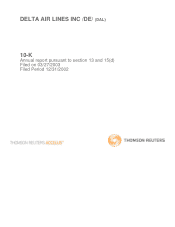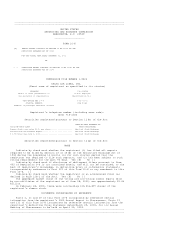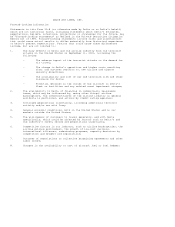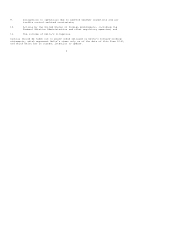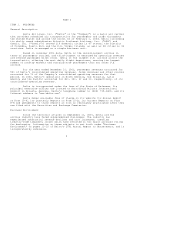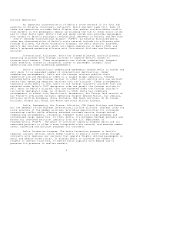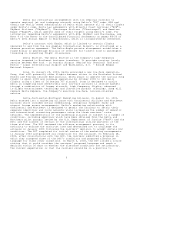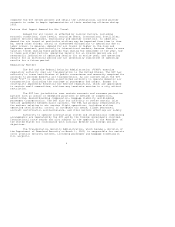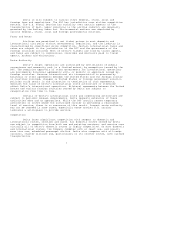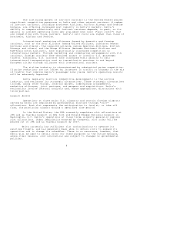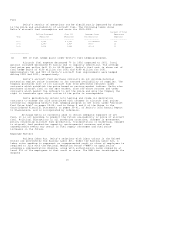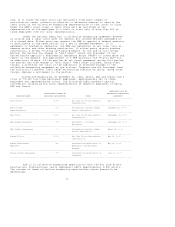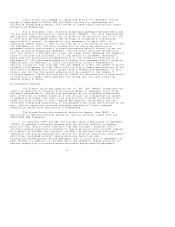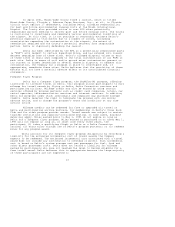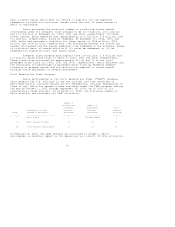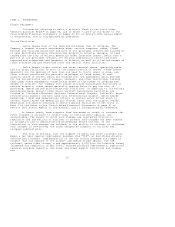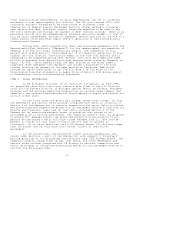Delta Airlines 2002 Annual Report Download - page 9
Download and view the complete annual report
Please find page 9 of the 2002 Delta Airlines annual report below. You can navigate through the pages in the report by either clicking on the pages listed below, or by using the keyword search tool below to find specific information within the annual report.complete the DOT review process and obtain the international airline partner
consents in order to begin implementation of their marketing alliance during
2003.
Factors that Impact Demand for Air Travel
Demand for air travel is affected by various factors, including
economic conditions, fare levels, terrorism fears, international hostilities,
airport security measures, seasonality and weather conditions. In addition,
demand for air travel at particular airlines may be impacted from time to time
by, among other things, actual or threatened disruptions to operations due to
labor issues. In general, demand for air travel is higher in the June and
September quarters, particularly in international markets, because there is more
vacation travel during these periods than during the remainder of the year. Due
to these and other factors, operating results for an interim period are not
necessarily indicative of operating results for an entire year, and operating
results for an historical period are not necessarily indicative of operating
results for a future period.
Regulatory Matters
The DOT and the Federal Aviation Administration ("FAA") exercise
regulatory authority over air transportation in the United States. The DOT has
authority to issue certificates of public convenience and necessity required for
airlines to provide domestic air transportation. An air carrier which the DOT
finds "fit" to operate is given unrestricted authority to operate domestic air
transportation (including the carriage of passengers and cargo). Except for
constraints imposed by Essential Air Service regulations, which are applicable
to certain small communities, airlines may terminate service to a city without
restriction.
The DOT has jurisdiction over certain economic and consumer protection
matters such as unfair or deceptive practices or methods of competition,
advertising, denied boarding compensation, baggage liability and disabled
passenger transportation. The DOT also has authority to review certain joint
venture agreements between major carriers. The FAA has primary responsibility
for matters relating to air carrier flight operations, including airline
operating certificates, control of navigable air space, flight personnel,
aircraft certification and maintenance, and other matters affecting air safety.
Authority to operate international routes and international codesharing
arrangements are regulated by the DOT and by the foreign governments involved.
International route awards are also subject to the approval of the President of
the United States for conformance with national defense and foreign policy
objectives.
The Transportation Security Administration, which became a division of
the Department of Homeland Security on March 1, 2003, is responsible for certain
civil aviation security matters, including passenger and baggage screening at
U.S. airports.
6

